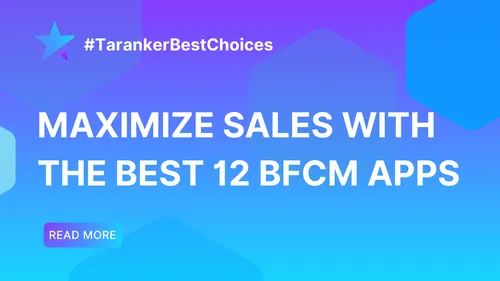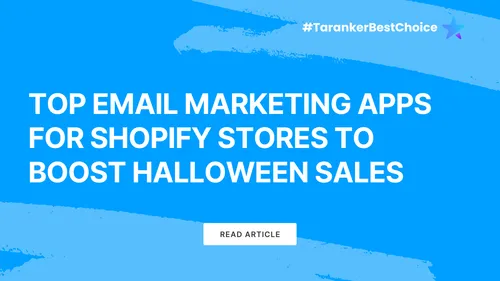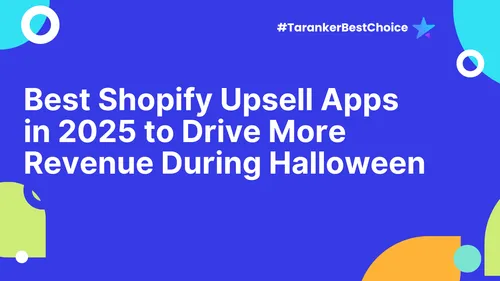If you're a new store owner or webshop owner, you've likely heard about SEO (Search Engine Optimization) and how crucial it is for getting your website noticed on Google and other search engines. One of the most important aspects of SEO is choosing the right keywords — and the question is: Should you focus on long-tail keywords or short-tail keywords?
In this post, we'll walk you through the differences between long-tail and short-tail keywords and help you understand which keywords are best suited for your online store. Whether you're just starting out or have been at it for a while, this knowledge can make all the difference when it comes to improving your visibility on the web.
What Are Short-tail Keywords?
.png)
Short-tail keywords, also known as "head keywords," are broad and typically consist of just one or two words. For example, a short-tail keyword for a store selling shoes might be "shoes" or "women's shoes." These keywords have a high search volume because many people search for them, but they also have a lot of competition. This means you're not the only one trying to rank for them, and it can be much harder to get to the top of search results.
Advantages of Short-tail Keywords:
-
High Search Volume: Many people search for these words, so there’s a potential for large amounts of traffic.
-
Visibility: Ranking well for a short-tail keyword can bring a lot of exposure to your website.
Disadvantages of Short-tail Keywords:
-
High Competition: Many websites and large brands are targeting the same keywords.
-
Lower Relevance: People searching for very broad terms may not have a clear purchasing intent, which makes it harder to convert them into customers.
What Are Long-tail Keywords?
Long-tail keywords are longer and more specific phrases that usually consist of three or more words. For example, a long-tail keyword for a shoe store might be "comfortable leather shoes for women in Copenhagen." These keywords have a lower search volume compared to short-tail keywords, but they’re also far less competitive, and they attract more targeted traffic.
Advantages of Long-tail Keywords:
-
Lower Competition: Fewer people are competing for these terms, making it easier to rank well in search results.
-
Higher Relevance: Long-tail keywords attract users with a clearer search intent, making it easier to convert them into customers.
-
Better Conversion: Because they’re more specific, people searching for long-tail keywords are more likely to be further along in the buying process and ready to make a decision.
Disadvantages of Long-tail Keywords:
-
Lower Search Volume: Fewer people search for these terms, which means the total traffic might be lower.
-
More Keywords to Choose From: You’ll need to spend time finding the right long-tail keywords, which can be a bit more time-consuming.
Which Is Better for Your Webshop?
.png)
The answer depends on what you want to achieve with your SEO strategy. If you’re just starting your online store, long-tail keywords might be a good place to begin. They’re easier to rank for, attract more qualified traffic, and have a better chance of converting visitors into customers. As your site gains more authority, you can gradually start targeting short-tail keywords.
Long-tail Keywords: Perfect for Beginners
Long-tail keywords offer a lower barrier to entry because competition is less fierce, and they attract an audience that already has a clear intent to purchase. They’re especially useful when you want to target specific customer groups, like people searching for a product with specific features or in a particular location.
Short-tail Keywords: When You're Ready to Scale
As your webshop grows and you gain good rankings for long-tail keywords, you can start considering targeting short-tail keywords. These can bring in large amounts of traffic, but keep in mind that the competition is high, which may require more time and resources for your SEO strategy.
How to Find the Right Keywords?
1. Google Autocomplete
Google Autocomplete is a quick and easy way to find both short-tail and long-tail keywords that are relevant to your business. When you start typing a search term in the Google search bar, Google will automatically suggest search phrases based on popular queries. This feature helps you uncover keyword ideas that users are actively searching for.
How to use it:
-
Begin by typing your core keyword (e.g., "women's shoes") in the Google search bar.
-
Google will suggest search queries that are commonly entered by users.
-
These suggestions are often a mix of short-tail and long-tail keywords that could be valuable for your store.
-
Take note of these suggestions and refine them to create a list of targeted keywords for your SEO strategy.
Example:
-
Start typing "leather shoes" and Google might suggest "leather shoes for women," "leather shoes for men," or "leather shoes for summer."
2. Google Trends
Google Trends allows you to analyze the popularity of search terms over time. It helps you identify trends, see how certain keywords are performing, and compare multiple keywords. This tool is especially useful for seasonal or trending products, as it shows the rise and fall in search volume, which can guide you in optimizing your content strategy.
How to use it:
-
Go to the Google Trends website and enter a keyword you are interested in (e.g., "comfortable sneakers").
-
You can compare multiple keywords to see which one is currently more popular.
-
Google Trends provides a visual graph of how interest in the term has changed over time.
-
You can also explore related queries and topics to discover additional long-tail keyword ideas.
Example:
-
You can compare “comfortable sneakers” with “best running shoes” to see which term is more popular, helping you choose the right keyword based on trends.
3. SEO Tools
There are many paid and free SEO tools available that offer keyword research functionality. These tools are designed to help you uncover valuable keywords, analyze competition, and measure search volume and keyword difficulty. Some of the most popular SEO tools include Ahrefs, SEMrush, and Google Keyword Planner.
How to use it:
-
Ahrefs: Provides a comprehensive keyword research tool, showing search volume, keyword difficulty, and competition. It also suggests related keywords that can help expand your list.
-
SEMrush: Offers a detailed keyword research suite that includes keyword suggestions, competition analysis, and trends. It also shows how well your competitors are ranking for specific keywords.
-
Google Keyword Planner: Ideal for beginners, this free tool from Google is particularly useful if you're running Google Ads. It provides insights into keyword search volume and competition, helping you pick the right keywords for organic and paid campaigns.
Example:
-
If you're using Ahrefs and searching for "women’s shoes," you’ll receive a list of keyword variations, their search volumes, difficulty scores, and other relevant metrics like cost-per-click (CPC). You can then select keywords that align with your business goals.
By combining these methods, you can gather a comprehensive list of keywords, both short-tail and long-tail, that are relevant to your webshop and help you optimize your SEO strategy effectively.
Discover more about how to boost your conversion rate by keyword
Conclusion
As a new store owner, understanding the difference between long-tail and short-tail keywords is crucial for building an effective SEO strategy. Start with long-tail keywords to build your visibility and attract qualified traffic, and over time, expand your strategy to include more competitive short-tail keywords. By selecting the right keywords, you can grow your online store and drive more customers to your website.













